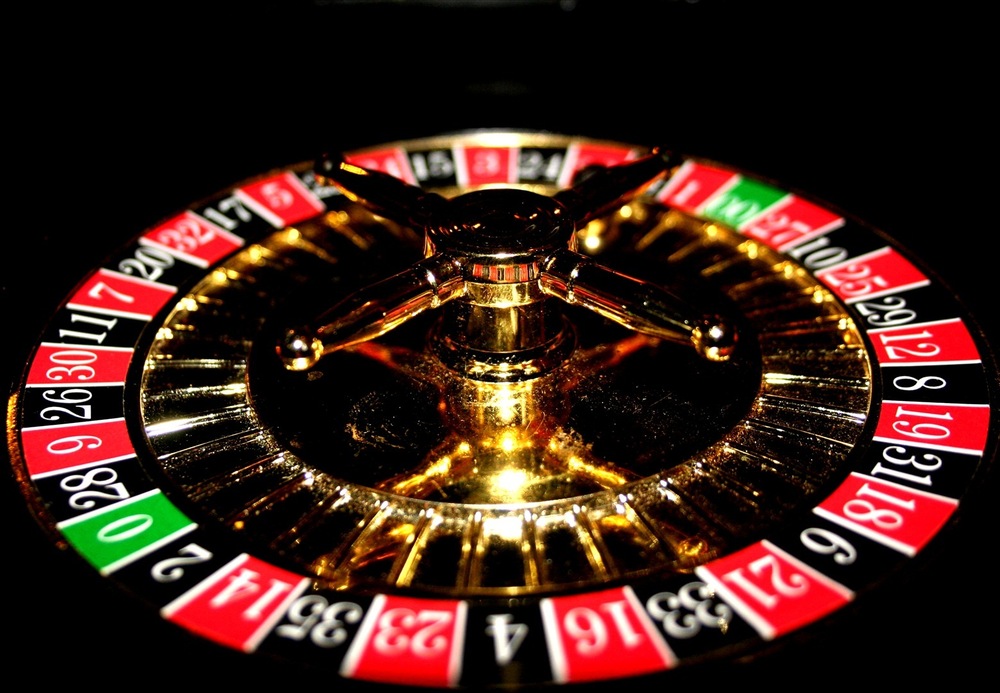You are in a room full of roulette tables. Someone gives you one chip and tells you to bet it on a number. Here’s the twist: all tables pay 36 to 1, but not all wheels have the same number of pockets. Some are standard, with the typical 0 to 36 numbering. You see one that has 500 numbers. Screw that one. One has 30 and a sign disclosing that it’s biased, only they won’t tell you how. Hmmm.
All wheels start spinning simultaneously. You can change your bet as often as you like, although it’s a big room and you’ll have to run around. You know that all wheels will stop spinning roughly at the same time. What to do?
Image from here.
This is a very rough analogy for what a startup is like. There are obvious ways to decrease your chances of success. Still, if you play the game optimally your odds are still low. There is much more randomness involved than most people are willing to admit. For this reason, most of the advice for startups is in the negative: there are tried-and-true paths that correlate with failure more than others (e.g. starting a company with people who don’t get along, outsourcing your core competency, placing your bet on the wheel with 500 numbers).
The truth about a startup is that we are performing an experiment as we go. We’re doing something that nobody has done before. Our combination of variables such as product, timing, market, team, competition, etc. is unique. We can find comparable stories, but we have no idea how the difference of a single variable affected the whole outcome.
Of course, this doesn’t stop very smart people from trying to find patterns. Because there are more failed startups than successful ones, we see articles like:
The 18 Mistakes That Kill Startups (by Paul Graham)
[Insert obligatory rant about correlation and causation here]
If you read these articles, you will find things that are common among startups that failed. Of course, who knows if those things are what made them fail. Some of them are pure hindsight. For example, Paul Graham has two bullet points that seem to contradict each other: slowness to launch and launching too early. What is the right time to launch then? Easy, look at successful startups. Those obviously launched at the right time! That advice amounts to “be lucky with timing.” He does the same thing with “raising too little money” and “raising too much.” How do you know how much to raise then? Here’s a hint: if you look at all successful startups, the amount of money raised ranges from zero to a lot.
Let’s pick on Paul Graham some more because it’s fun. An obvious question is how many startups that made many of those mistakes succeeded. I for one made mistake #1: being a single founder. It wasn’t a walk in the park of course, but I disagree with pretty much everything he says in bullet #1. I have lots of friends, but IndexTank just happened before I had a chance to get anyone else involved as a founder. I found great investors and advisors to brainstorm with. It was a resounding success in my book. Did I get lucky? Sure, that’s my whole point.
The other article is even worse because it has the words “reasons” in the title. If you take a look you will find gems such as #2, building a solution looking for a problem. This sounds a lot like Twitter, doesn’t it? Of course they could argue that Twitter is an outlier. I think we have a theme going on.
The authors enumerate a list of things that happen to startups that fail, and call them reasons. A few centuries ago they might have argued that gravity is caused by the large number of objects falling to the ground every day. I would sentence them to five years of studying the scientific method in a prestigious university, and then spend the rest of their lives trying to disprove evolution or something.
There are more balanced views out there of course. I found this presentation called Contradictory Startup Advice… and how to navigate it. The author makes fun of unsound advice from gurus with strong opinions, and then goes on to give some relatively tame advice of her own (e.g. avoid the roulette wheel with 500 numbers). It boils down to “reduce your obvious chances of failure and then hope to get lucky.” What she says makes sense, but I would argue that someone who needs that advice has no business starting a business.
With so much luck involved, all someone can do is bet as many times as possible with the best odds you can find. Essentially, not giving up and not going broke. Successful startups are survivors, and that’s why there is so much survivor bias in the advice you’d get from a successful founder. Don’t expect any advice from me other than “be lucky.”
Wait, perhaps I’m on to something with the “not giving up” part. Can you really advise someone to be relentless? I’m not sure. Speaking for myself, I have been relentless (very annoying to my parents) for as long as I can remember. I tried really hard to change some of my personality traits for decades. I succeeded at some and failed at others, and it wasn’t for lack of trying. If someone said “learn to be relentless” my answer would be “and you learn to be a dolphin.” Or a towel. Don’t forget to bring a towel. That is good advice. I always know where my towel is.
Hit it, Frank.
